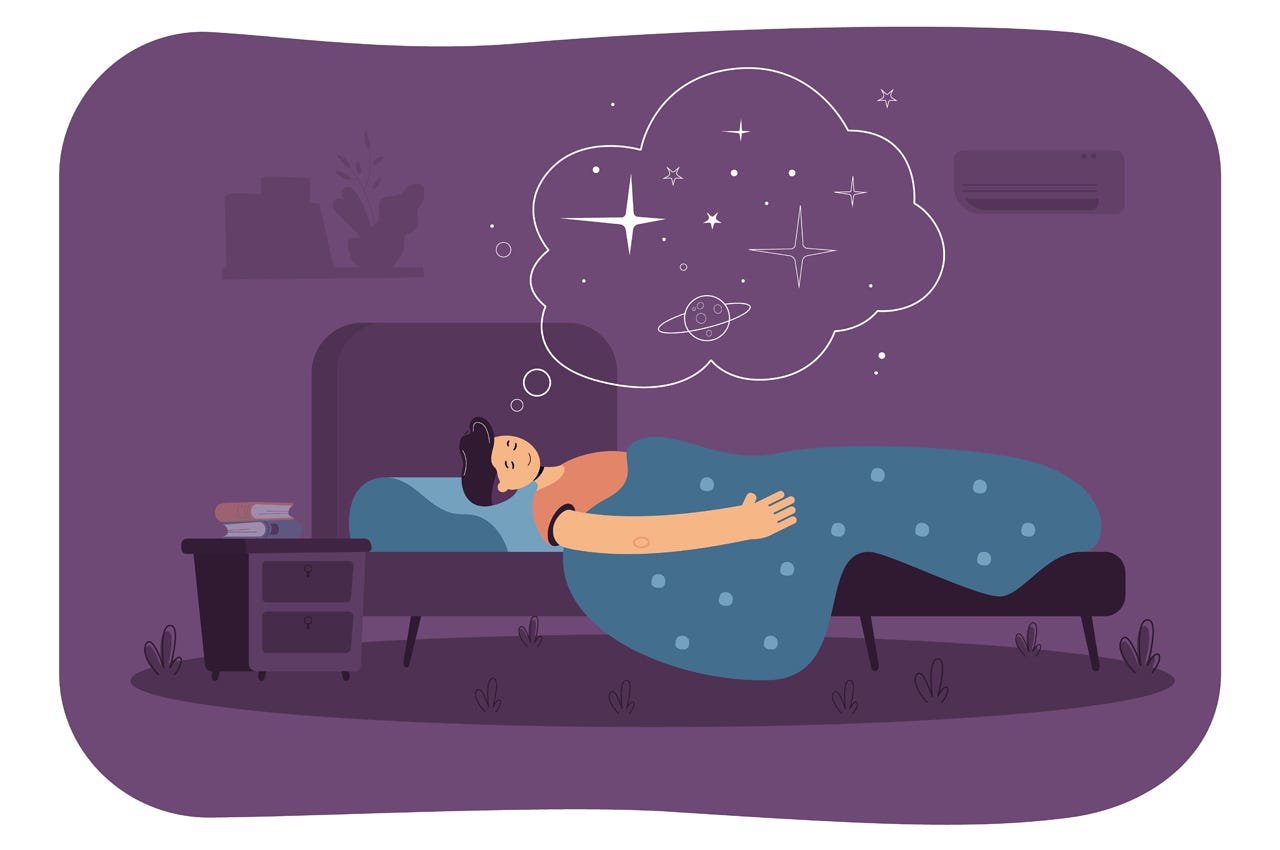Dreams and Sleep
Have you ever wondered what happens in your mind when you go to sleep? Some of you might think our mind shuts down and gets rest, just like our body does. But each night, as we close our eyes and go to sleep, our brain continues to be active. As it moves through various sleep stages, it creates the mysterious phenomenon of dreams. Dreams are more than just a recap of the day’s events; they are the result of our brain's complex activities during REM (or rapid eye movement) sleep. Let's learn more about the fascinating relationship between dreams and sleep, considering both the scientific perspectives and the psychological interpretations that are most popular.
Understanding Sleep Stages and REM Sleep
When we sleep, our brain doesn’t stay in one constant state. Instead, our brain cycles through multiple stages, each characterized by different brain wave activities. These stages include light sleep (known as N1 and N2), deep sleep (N3), and REM sleep. REM sleep is particularly fascinating because it is the stage most associated with vivid dreaming.
The Lightbulb Analogy
Think of a lightbulb: when it's on, it lights up and also emits heat . When our brain is in REM sleep, it’s on and the dreams it creates is like the heat of the light bulb. During REM, our brain's activity appears the same as when we’re awake, yet our bodies are in a state of paralysis, except for our eyes, which continue to move back and forth. That’s how the term 'rapid eye movement' came about!
This analogy shows us that while dreams are a natural outcome of REM sleep, they are not its primary purpose. Instead, they are an interesting byproduct that is produced as our brain processes information and experiences.
Psychological Perspectives on Dreams
Dreams have always been a fascinating topic of conversation. Sigmund Freud, one of the most well-known experts in psychology, believed that dreams are stories created by our unconscious mind. He believed that dreams had both manifest content (the actual images and events of the dream) as well as latent content (the hidden, symbolic meaning of the dream). Freud believed that dreams are a window into a person’s unconscious. By analyzing a dream’s latent content, we could learn about our hidden desires and unresolved conflicts.
However, not everyone believes that dreams have symbolic significance. Many modern scientists view dreams as a neurological byproduct of brain activity during REM sleep. From this perspective, dreams are the mind's way of processing and integrating memories, emotions, and experiences that we experience during the day.
Dreams
As you can see, when it comes to dreams, there are many different viewpoints. Some researchers believe that dreams have many benefits, such as unconscious understanding, emotional regulation, problem-solving, and reinforcing learning and memory. Others argue that dreams are merely random 'noise' generated by the brain's activity during sleep.
Conclusion
Regardless of their interpretation, dreams are a universal human experience, reflecting the complexity and mystery of our minds. The lightbulb theory offers an easy to understand analogy for understanding the relationship between REM sleep and dreams, but it’s hard to say for sure whether dreams are a window to our subconscious or a result of our brain's nightly activities. Either way, whether viewed through the lens of psychology, neuroscience, or personal introspection, dreams are a natural part of sleep and remain one of the most mysterious aspects of our sleep life.
Works Cited:
Carskadon, Mary A., and William C. Dement. "Normal Human Sleep: An Overview." Principles and Practice of Sleep Medicine, edited by Meir Kryger et al., Elsevier, 2017, pp. 15-24
Domhoff, G. William. "The Scientific Study of Dreams." American Psychologist, vol. 54, no. 10, 1999, pp. 780-786.
Freud, Sigmund. The Interpretation of Dreams. Basic Books, 2010.
Hobson, J. Allan. Dreaming: An Introduction to the Science of Sleep. Oxford University Press, 2003.
National Sleep Foundation. "The Science of Sleep." www.sleepfoundation.org, Accessed 2024.
Rasch, Björn, and Jan Born. "About Sleep's Role in Memory." Physiological Reviews, vol. 93, no. 2, 2013, pp. 681-766.
Walker, Matthew. Why We Sleep: Unlocking the Power of Sleep and Dreams. Simon & Schuster, 2017.



